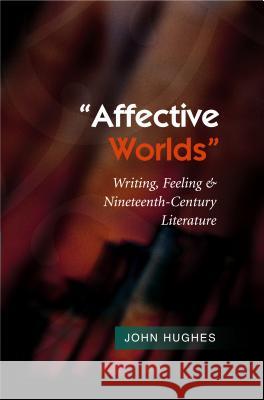Affective Worlds: Writing, Feeling & Nineteenth-Century Literature » książka
Affective Worlds: Writing, Feeling & Nineteenth-Century Literature
ISBN-13: 9781845194420 / Angielski / Twarda / 2011 / 188 str.
Offering an original approach to a number of 19th-century authors in terms of the constitutive affective dynamics of their work, this book emphasizes issues of the embodied mind in literary texts. Pursuing theoretically and philosophically informed close readings, John Hughes explores the inventive and discriminating powers of thought as well as the projections of identity and relatedness staged and expressed by imaginative writing in the long 19th-century. Within each chapter a writer is seen as investigating the physical or emotional determinants of mind, as well as the social conditions of subjectification, through the figurative, dramatic, and subjective means of their art. The individual author chapters examine a singular, exemplary instance of how acts of mind and moments of self-awareness are generated from emotional or physical response: musical experience in Blake; the recreational activity of walking in Wordsworth; fantasies of resentment in Poe; moments or modes of cross-gender, feminine identification in Tennyson; bodily sensation, and self-separation in Charlotte Bronte; and eye contact and looking in Hardy. In each case, the sample texts from these authors and poets display an affective or physical inspiration. Hughes draws on themes of ethical subjectivity in the work of Stanley Cavell and Gilles Deleuze to provide essential reading for all those involved in 19th-century literature."











